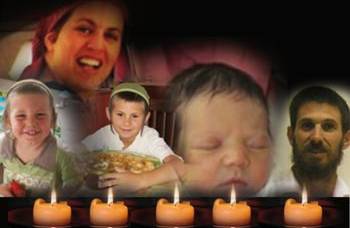1. The Movie "Footnote" and Brit-Am.
Note:
Yours truly saw most but not all of the movie. Reports say the ending is a
disappointment. Find out at your own risk.
(a) The Movie.
Footnote
http://en.wikipedia.org/wiki/
Footnote_(film)
Footnote (Hebrew: , translit. He'arat Shulayim) is a 2011 Israeli drama film
written and directed by Joseph Cedar, starring Shlomo Bar Aba and Lior
Ashkenazi. The plot revolves around a power struggle between a father and son
who teach at the Talmud department of the Hebrew University of Jerusalem.
The film won the Best Screenplay Award at the 2011 Cannes Film Festival.
Footnote won nine prizes at the 2011 Ophir Awards, becoming Israel's entry for
the 84th Academy Awards for Best Foreign Language Film.[1][2] On January 18,
2012, the film was named as one of the nine shortlisted entries for the
Oscars.[3] On January 24, 2012, the film was nominated for an Academy Award in
the category of Best Foreign Film.[4]
Footnote (2011)
Director:Joseph Cedar
Movie review From Time Out Online by Geoff Andrew
http://www.timeout.com/film/
reviews/89947/footnote.html
Extracts:
It concerns the intense rivalry between a father and son: Eliezer and
Uriel Shkolnik (Shlomo Bar Aba and Lior Ashkenazi), both professors in the
Talmudic studies department at the Hebrew University in Jerusalem. It begins '
dramatically ' with the worst day in the former's life, when he has to attend a
ceremony welcoming his son into the Academy, an honour he himself never
received. Things improve for Eliezer when he hears that he's finally going to be
given, after decades of disappointed waiting, the prestigious Israel Prize. It
may, as a chapter heading tells us, be the best day of his life, but it's also
the start of a series of events that are not only morally complicated but,
perhaps, infinitely sad.
The film is almost novelistic in terms of the detail and subtlety with which
Cedar draws both the many differences and similarities between father and son,
not to mention the arcane workings of and divisions within Israel's academic
establishment. At the same time, however ' and this is partly where the film's
brilliance lies ' he adopts a vividly imaginative cinematic style so that form
reflects content; the film's title, for example, refers not only to a small but
crucial detail in the storyline but also to a way in which we might regard the
modest but conscientious elder professor and to an aspect of the film's own
narrative structure.
Clearly, this is a film that has been meticulously thought through on every
level. So even though many found its orchestral score overly insistent and loud,
its tone ' reminiscent at times of the late symphonies of Shostakovich, some of
which were themselves of course profoundly concerned with Jewish history and
suffering ' is entirely appropriate to this study of seemingly small-scale
familial and academic conflict which nevertheless takes on, for all involved,
the dimensions of an epic struggle between the old and the new, truth and
falsehood, right and wrong.
Remarks:
Daniel said:
Posted on Oct 08 2011 10:06A beautiful movie! Not mentioned in the review, but
of importance I believe, are the subtle (or not so subtle) criticisms of
academic rivalry, of the Israeli Ministry of Education (they are unable to find
a meeting room with enough space for all committee members!), and the
ever-present self-justifying security apparatus.
(b) The Brit-Am Aspect.
(1) The Movie and Biblical Values.
The Movie plot involves a father and son both of whom are academic researchers
of the Talmud.
They are not religious.
Just as one has non-believing self-imposed scholars of the Bible so too with the
Talmud.
Concerning the Bible the Prophet Ezekiel had already expressed his opinion about
those who appreciate the aesthetic aspects of the Torah and Prophets but neglect
the main message.
Ezekiel 33:
32 Indeed you are to them as a very lovely song of one who has a pleasant voice
and can play well on an instrument; for they hear your words, but they do not do
them.
The Talmud is a work of great historical and cultural value. This story is about
those who study it for academic reasons.
Apart from that the film is well-done and entertaining.
It was filmed in Jerusalem and nicely illustrates the life-style and attitudes
of a segment of the Israeli Upper Class.
It is also a story of a son honoring his father even though this honor is not
requited.
(2) Brit-Am and the Movie.
Several of the Scenes are taken at the National Library at Hebrew University,
Givat Ram Campus, where Yair Davidiy spent the equivalent of a decade in
full-time research.
Other scenes are taken in the Vale of Crucifixion just besides our present
residence for the past ten years or so and in the neighborhood of Rechavia,
Jerusalem,
near where we live and work.
The scenes are good, the photography to my untrained eyes seems of a high
standard.
2. MK Katz: Women Harmed by Service in
Combat Units
http://www.israelnationalnews.com/
News/News.aspx/152153
NU head exposes research that shows women suffer 4-10 times more serious
injuries than men, hints at cover-up.
By Gil Ronen
First Publish: 1/27/2012, 6:26 AM
Extracts:
The head of the National Union, MK Yaakov Katz (Ketzaleh), launched a
counterattack against politicians who he says want to push religious men out of
the IDF, and replace them with women. MK Katz presented the Knesset with recent
research conducted by the IDF with the U.S. military that shows women in combat
units have much higher rates of injury and suffer much more serious injuries
than men.
"A study conducted by the Chief Medical Officer in July 2011 together with the
U.S. military showed that women who undergo the same things that men undergo in
artillery units, in Karakal and the antiaircraft array are physically hurt four
times more than the men, and the seriousness of their injuries is 4 to 10 times
greater," said Katz.
Turning to female MKs Einat Wilf (Independence) and Orit Zuaretz (Kadima), who
were seated in the plenum, he said: "The Holy One made us men and made women '
...G-d made us different. He gave the woman a womb, he gave us strong arms, each
one has a different role and we are built differently. Along comes this study
and shows that women suffer four times the injuries. And where are the injuries'
Uterine prolapse. They cannot give birth afterward. Ruptured discs. Stress
fractures. This is what needs to be answered. We took our women, who are gentle,
and modest and kind, and we decided to turn them into men. I am telling you, MK
Wilf and anyone who is listening to me including the Chief of Staff - it is not
possible, MK Zuaretz, to turn a woman into a man. Impossible!"
MK Katz hinted that the military is trying to cover up the added danger that
women are exposed to in the combat units. "When a woman is hurt this way, when
she is discharged from the army ' she is unable to obtain [her medical] files,"
he said. "You should look into this. Why is it that a woman who is discharged
from the army because of one of these things ' the files suddenly disappear?"
3. Study: Belief in G-d, Religious
Observance on the Rise
http://www.israelnationalnews.
com/News/News.aspx/152129
by David Lev
Extracts:
A new study shows that 80% of Israeli Jews believe in G-d. The study by the
Gutman Center of the Israel Democracy Institute, conducted on behalf of the
Avi-Chai fund, polled thousands of Israelis in the past several years, and
discovered that the number of Israeli Jews who believe in G-d and practice a
religious lifestyle is on the upswing.
Analysts speaking on Army Radio Thursday said that, while the previous studies
showed a continuous decline in the level of belief among Jews in Israel during
the 1990s, the latest study shows a significant increase in belief since 2000.
The poll showed that 77% of Israeli Jews believe in a 'divine power' that guides
the world, and that 72% believe that prayer has the power to improve their
lives. 67% believe that Jews are the chosen people, and 65% believe that the
Torah and its commandments are of Divine origin. In addition, 34% believe that
Jews who do not observe the Torah are endangering their fellow Jews and
Israelis.
The poll also showed a marked change in the number of Israeli Jews who consider
themselves 'religious' or 'observant.' In the latest study, 15% consider
themselves 'religious' ('Dati'), compared to 11% in 1999, while 7% said they
were Hareidi, compared to 5% in the previous study. 32% said they were
'traditional' ('Mesorati'), compared to 32% in 1999. 43% of Israelis in the
current study consider themselves 'secular' ('chiloni'), compared to 46% in
1999, while 3% today said they were 'anti-religious,' compared to 6% a decade
ago.
|




